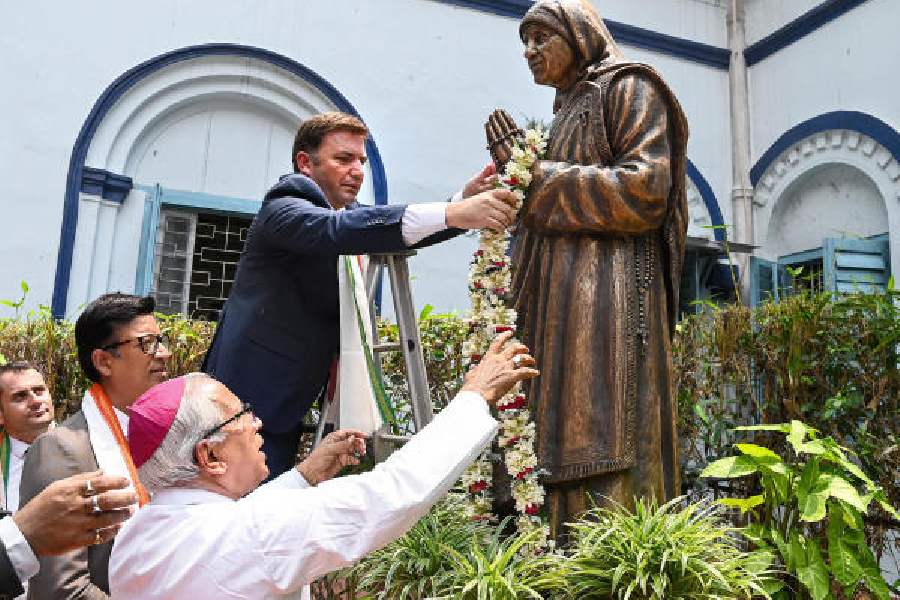The foreign minister of North Macedonia, the country from where a young Anjeze Gonxhe Bojaxhiu came to Kolkata and became the city’s beloved Mother, said he admired India as a melting pot of cultures much like his homeland.
Bujar Osmani, who is on a state visit to India, spent much of Friday in Kolkata, where he visited the Mother House. Bojaxhiu, who would later be known as Mother Teresa, came to Kolkata on January 6, 1929, when she was 18.
“Skopje (capital of North Macedonia) is a city of multiculturalism. The Macedonians are in majority. Then there are Albanians, Romans, Turks, Serbs and others. It is like a melting pot, a city of solidarity and tolerance between different ethnic groups, much like India,” said Osmani.
“Here is where I bring in the connection. Why do I think that she (Mother Teresa) chose her path to India? I believe that these ingrained features of Skopje have influenced her lifelong dedication in serving the underprivileged. I believe these features are also the most important bond between our nations,” he said.
“I came here on an official visit. The foreign minister who came before me was in 2009 when we opened an embassy here (in India). That was a milestone for bilateral relations.
“We want to develop closer friendship and partnership, Mother Teresa being the spiritual bond between the two countries. We are both democracies that believe in market economy and human rights and liberal democracy,” said Osmani, who is a surgeon by training.
On Friday, he also visited Archbishop’s House and met the Kolkata mayor. In between, in a freewheeling chat with The Telegrah, he spoke on a range of subjects.
Excerpts from the conversation
A portrait
When you enter my office in the ministry of foreign affairs in Skopje, the first portrait you see behind my main desk is a big portrait of Mother Teresa.
It tells a lot. How important Mother Teresa is as a personification of our identity as a country and also as a people.
Like Mother Teresa, I am also an ethnic Albanian from Skopje.
She was a girl from Skopje who became the mother of Kolkata.
I cannot come to India and not come to Kolkata which is the paradigm of Mother Teresa and her work.
It was an immense emotion when I went to her resting place and laid a wreath of flowers and then went to the room where she spent 47 years of her life.
In 2010, I was minister of health in North Macedonia. I named one of the main hospitals in the country after Mother Teresa. Now, the main highway in North Macedonia also bears the name of Mother Teresa.
We have a memorial in the city centre of Skopje standing as a profound representation of her legacy. The days between August 26, when she was born, and September 5, when she passed away, are named the Days of Mother Teresa. We organise different celebrations to promote her work, her legacy.
She is so important to us. But she is also an important bridge between us and India.
Possible partners
I came here to present the potential of North Macedonia. We are complementary in many fields and areas. Like automobile industry, textile, agro-business, renewable energy and tourism.
We want to present North Macedonia as a haven for tourism in this part of the world. Although it is a landlocked small country in southeast Europe, at the crossroads of the trans-European corridor, we are a candidate country currently negotiating for membership in the European Union. We are a member of Nato.
Democracy
The world is going through a period of recession of democracies. The idea of a liberal democracy is being challenged. The polarisation of the
world is on the basis of democracy versus authoritarianism.
I have come to the largest democracy in the world, which is a reflection of prosperity and progress. What you did with the landing on the south pole of the Moon was a technological masterpiece.
